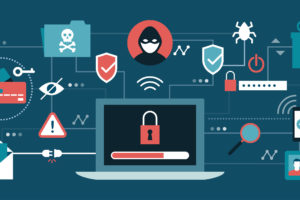Email: it’s a powerful communication tool, and for many businesses, your link between your business and the outside world. While it may not be the most exciting technology, it’s one of the oldest and most effective. Many internet experts predict that email will outlast social media.
Unfortunately, while email has many uses for your business, it also serves as a portal between your business and the open world. Scammers often attempt to make use of email to launch personalized attacks.
To avoid losing money and time and to avoid infecting your computer with malicious software, it pays to educate yourself on the most common email scams. Have you seen any of these in your inbox?
1) The PayPal or Online Banking Scam
Regardless of what online payment solution you use, you may be at risk for these scams.
In this classic scam, you receive an email labeled “URGENT!” It may say that your credit card or PayPal account has encountered a problem. If you don’t act quickly, your account may be deactivated.
When you click the link in the email, it may take you to an official-looking page. Perhaps it even has the PayPal logo, or your bank’s. Typically, there will be fields for you to input your username and password, to verify your information.
But once you put in this information, you’ve given your information to cybercriminals. Armed with this information, they can drain your account — or steal your identity.
So, how do you avoid this scam? First, carefully check the sender’s address. While some scammers have begun spoofing important-sounding URLs, the email address will more likely look like gibberish. Secondly, carefully read the email. These scams are often perpetuated by foreign agents, and will often have spelling mistakes and typos. Finally, if you really think there’s a problem, call your bank or PayPal’s official customer care line and ask.
2) The Gift Card Scam
This sophisticated scam is a form of “spearphishing,” or directly targeting your business. In this scam, someone will assume the role of a higher-up in your company, like a Vice President or manager. Then, they’ll email your purchasing department or your secretary, claiming that you need to buy gift cards as a thank-you present for a client. Afterwards, they’ll ask the unsuspecting party to provide the codes on the back. Then, of course, the scammer will redeem the codes for their own gain, leaving your business out hundreds of dollars.
Sound ridiculous? Of course. But according to Verifi, 9.5% of all fraud attempts involved gift cards in 2015, and that number is expected to grow.
Combating this scam takes effort. You should inform your workers that they should always come to you to verify gift card purchases. Creating a culture of trust is the key to preventing this form of fraud. You may even want to instate a “no gift card” policy, or handle the purchases yourself.
3) The Survey Scam
Scammers are adaptable — that’s part of why they continue to defraud millions of people each year. With a fever-pitched political cycle gaining steam, you might not think twice about the political surveys you receive in your email. This official-looking email will invite you to give your thoughts on global warming, presidential candidates, or other pressing political issues.
But instead of providing your opinion, you’ll be installing malicious software on your computer when you click the link. Scammers can then use this tracking software to access your bank account and steal your identity.
So, how do you dodge this scam? Follow good email safety — never click links in unsolicited emails, maintain a robust anti-virus program, and update your spam filters. The loss of your identity is never worth telling “the man” what you really think.
Need help combating cyber-scams in your business? Contact Vodigy today! Our managed IT services create a safer, more effective digital environment for small and medium-sized businesses.




